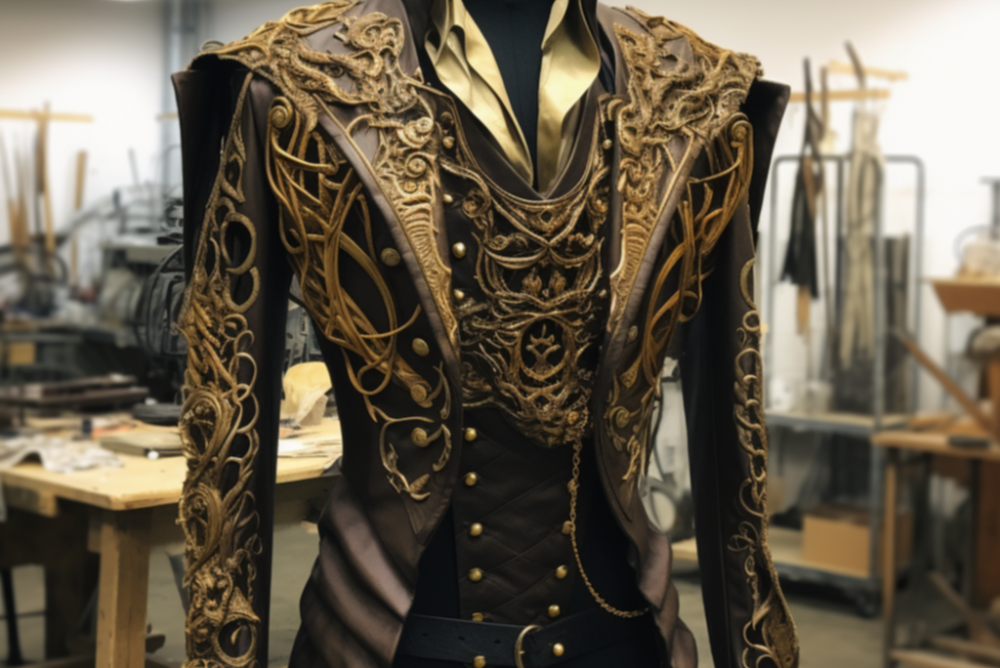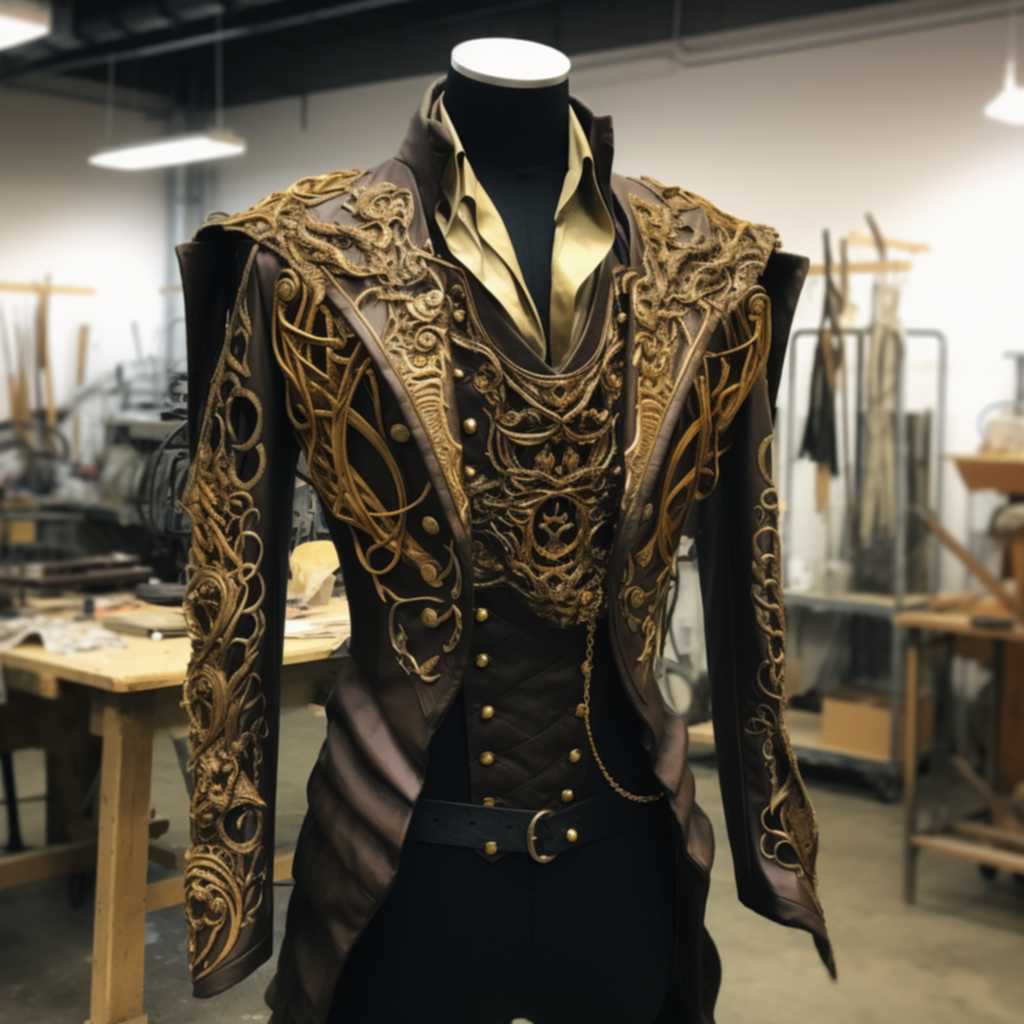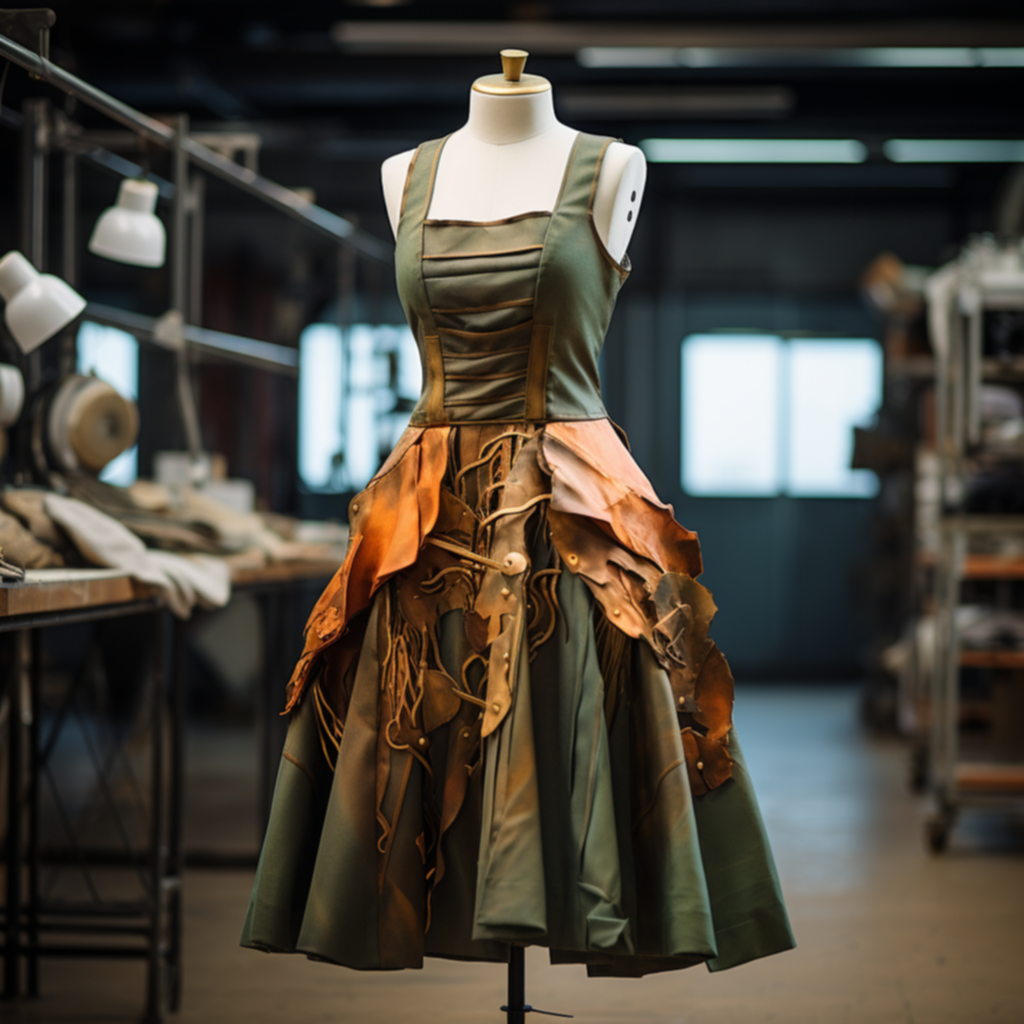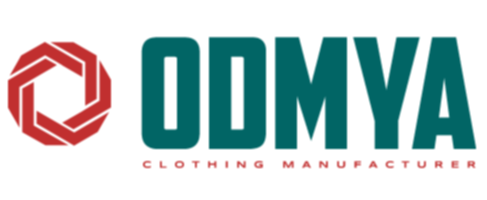Top 9 Small Quantity Clothing Manufacturers in Europe


Finding the right manufacturer is pivotal to the success of a clothing brand. The process, akin to concocting the perfect recipe, demands careful deliberation, research, and intuition. When building a fashion brand, the manufacturers must align with your brand's values, grasp your aesthetic, and deliver your envisioned product within the desired quality and quantity.
An escalating trend in the fashion industry today is a movement towards small quantity clothing manufacturing, particularly for emerging designers who prioritize flexibility, cost-effectiveness, and adherence to sustainable practices. This trend is mirrored in the rise of manufacturing hubs that cater specifically to smaller order quantities, and no region is more revered for this than Europe.
Known for its unparalleled commitment to quality and sustainability, Europe has become a haven for small quantity manufacturers. Here, craftsmanship takes center stage, with manufacturers priding themselves on quality materials, ethical practices, and unique design capabilities that cater to small scale clothing brands.
In this comprehensive guide, we shall explore the top nine small quantity clothing manufacturers across Europe. We delve into each one's history, specialties, ethical practices, and why they might just be the perfect fit for your brand. From the heart of the British textile industry to the stylish boulevards of France, the art-driven streets of Italy, and beyond, this guide aims to help you navigate through Europe's best small quantity manufacturers. So, let's begin this journey into the vibrant and versatile world of European clothing manufacturing.
The Importance of Small Quantity Clothing Manufacturing
In a world where fast fashion had previously taken center stage, a recent shift in the fashion industry has propelled small quantity clothing manufacturing into the limelight. Increasingly, brands and designers are pivoting to this model of production, for a medley of compelling reasons. From its innate flexibility and sustainability to the promise of delivering high-quality products, small quantity manufacturing is becoming the new norm for upcoming and established brands alike. Let's delve into why this model holds immense significance today.
Flexibility
In the dynamic world of fashion, the ability to adapt and change swiftly is key. Designers thrive on creativity, continuously iterating and modifying their designs to keep up with trends, consumer preferences, and market feedback. Traditionally, in bulk manufacturing, making design alterations or production changes can be time-consuming, complex, and expensive. In contrast, small quantity manufacturing offers flexibility, allowing brands to be agile and innovative. It supports experimentation, enabling designers to iterate and improve upon designs based on consumer feedback, seasonal trends, and market dynamics. This iterative process can prove to be pivotal in a brand's journey towards perfecting its offerings.
Sustainability
The modern consumer is conscientious and informed, valuing the impact their purchases have on the environment. The fashion industry's environmental footprint has come under scrutiny in recent years, prompting brands to adopt more sustainable practices. Small quantity manufacturing aids in achieving these sustainability goals. By producing in smaller batches, brands can significantly reduce waste from overproduction and unsold inventory. Additionally, smaller production runs can also be managed more efficiently, potentially saving energy and reducing the industry's overall environmental impact. In essence, small quantity manufacturing enables brands to be eco-friendly, meeting consumer expectations and contributing to a more sustainable fashion ecosystem.
Quality
When it comes to fashion, quality is king. Consumers appreciate well-made garments that are designed to last, offering better value for their money. Small quantity manufacturing can provide a significant advantage in this regard. When production runs are smaller, each piece can be given individual attention, ensuring that the quality is not compromised. Detailed craftsmanship, precision in execution, and meticulous quality control are more achievable, resulting in superior end products. This focus on quality, enabled by small quantity manufacturing, can boost brand reputation and customer satisfaction, key factors that contribute to a brand's success.
In conclusion, small quantity manufacturing is not merely a trend, but a conscious shift in the way fashion is produced and consumed. It offers flexibility, promotes sustainability, and ensures the delivery of high-quality products, three cornerstones that define modern fashion brands. As we move forward, it is essential to explore these small quantity manufacturers that are shaping the future of the industry. In the following chapters, we will delve into key considerations when choosing a manufacturer and present our top picks for small quantity clothing manufacturers in Europe. Stay tuned.
Key Factors to Consider When Choosing a Manufacturer
Choosing the right manufacturer for your clothing line is a strategic decision. It's like selecting a partner who will work with you to realize your creative vision, while also understanding the nuances of your brand ethos and working style. To navigate through this decision-making process, you should consider several key factors. Here, we'll delve into the core aspects that ought to influence your selection: communication, expertise, production lead times, and sustainability practices.
Communication
In any partnership, communication is crucial. The manufacturer you choose will play a critical role in executing your creative vision, and thus, seamless interaction is vital. Look for manufacturers who are transparent and responsive in their communication, and those who provide clear answers to your queries. Regular updates, understanding of your requirements, and problem-solving abilities are all markers of good communication.
Expertise
The manufacturer's expertise in dealing with your specific product type should be another deciding factor. For instance, if you specialize in knitwear, a manufacturer with extensive experience in this area would be a better fit than one predominantly working with woven materials. Review their portfolio, check their previous collaborations, and assess the quality of their work to ascertain their competence.
Production Lead Times
Time is a significant factor in the fashion industry. Your manufacturer should be capable of delivering high-quality products within your desired timeline. Longer lead times can slow down your production cycle, affect your launch dates, and ultimately influence your profitability. Hence, consider their capacity, efficiency, and reliability to meet deadlines.
Sustainability Practices
As discussed in the previous chapter, sustainability is an essential factor in modern fashion. Many consumers now prioritize eco-friendly brands, making it imperative for businesses to align themselves with manufacturers who follow sustainable practices. Look for those who prioritize responsible sourcing, waste management, energy efficiency, and fair labor practices.
In conclusion, choosing a small quantity clothing manufacturer requires careful evaluation. Keep these factors in mind when exploring potential partners for your fashion brand. The following chapter will provide a detailed overview of the top nine small quantity clothing manufacturers in Europe, each assessed against these key factors to help you make an informed decision.

Top 9 Small Quantity Clothing Manufacturers in Europe
This chapter forms the nucleus of this guide. Here, we will explore nine of Europe's top small quantity clothing manufacturers, each renowned for their distinct capabilities. We delve into their background, specialization, and ethical practices, painting a comprehensive picture of their offerings.
1. Dewhirst, UK
As one of the UK's leading clothing manufacturers, Dewhirst specializes in providing small quantity manufacturing services. Founded in 1880, they have a rich history of craftsmanship and innovation. Dewhirst has an in-house team of designers and technicians who ensure high-quality products. They also focus on sustainability, implementing eco-friendly measures across their supply chain.
2. S. Rothschild & CO, France
S. Rothschild & CO is a French manufacturer known for their exceptional craftsmanship. Specializing in luxury and high-street fashion, they provide flexible manufacturing services for small to medium quantities. Sustainability is integral to their operations, with a keen focus on reducing waste and energy usage.
3. Zerobarracento, Italy
Zerobarracento, based in Italy, is a pioneer in sustainable small quantity manufacturing. Their ethical practices, such as using recycled materials and zero-waste production techniques, set them apart. They cater to a range of clothing brands, ensuring each garment is impeccably crafted to align with the client's vision.
4. Mikro, Spain
Spain's Mikro is known for their attention to detail and quality craftsmanship. Catering to small and medium-scale fashion brands, Mikro offers flexible production runs, allowing for design modifications and improvements. Their sustainable practices include using organic materials and reducing waste in production.
5. Printsome, UK
Printsome is a UK-based clothing manufacturer that provides small scale production with a quick turnaround time. They offer an array of services, including screen printing, direct-to-garment (DTG) printing, and embroidery. Printsome is also committed to sustainability, using organic and eco-friendly materials in their products.
6. Slow Fashion World, France
Based in France, Slow Fashion World is a hub for sustainable and ethical fashion. They specialize in small quantity production, providing a platform for designers and brands to create high-quality, eco-friendly clothing. They work closely with brands to understand their vision and produce garments that align with their ethos.
7. Apparel Tasker, Greece
Apparel Tasker, located in Greece, offers a blend of traditional craftsmanship and modern technology. They provide small batch production services, with a focus on quality and detail. Apparel Tasker employs sustainable practices, including energy-efficient production methods and waste reduction strategies.
8. Sofija, Lithuania
Sofija, based in Lithuania, is a clothing manufacturer that specializes in small quantity production for children's clothing. They prioritize quality and sustainability, using certified organic materials and ensuring fair labor practices. Sofija's team works closely with brands, providing personalized services to realize their design visions.
9. Tricorp, Netherlands
Tricorp is a Netherlands-based manufacturer that excels in producing workwear in small quantities. Their commitment to quality, flexibility, and sustainability makes them a preferred choice for many brands. Tricorp ensures high-quality garments while adhering to stringent ethical and environmental standards.
Pros and Cons of Each Manufacturer
Choosing the right manufacturer requires careful consideration of their strengths and limitations. In this chapter, we will discuss the pros and cons of each of the nine manufacturers introduced previously.
1. Dewhirst, UK
Pros: Dewhirst's commitment to quality and sustainability is laudable. Their long history in the industry makes them a reliable partner, and they offer an in-house design team to assist with production.
Cons: As a UK-based company, their services might be more expensive than some of the other European manufacturers, and they may have stricter minimum order quantities.
2. S. Rothschild & CO, France
Pros: Renowned for their fine craftsmanship, S. Rothschild & CO has expertise in luxury and high-street fashion. Their flexible manufacturing services can accommodate a wide range of design requirements.
Cons: Their focus on high-end fashion may not suit brands targeting a different market segment. Also, communication might be an issue if you are not fluent in French.
3. Zerobarracento, Italy
Pros: Zerobarracento's sustainable practices are impressive. Their zero-waste production techniques and use of recycled materials set them apart in the industry.
Cons: While their sustainable practices are commendable, brands may need to be flexible with their design aesthetics and materials.
4. Mikro, Spain
Pros: Mikro offers quality craftsmanship and pays close attention to detail. Their flexible production runs make them an excellent choice for brands that require frequent design iterations.
Cons: They might have longer lead times due to their focus on quality over speed.
5. Printsome, UK
Pros: Printsome offers a wide array of services, quick turnaround times, and commitment to sustainability, making them a great option for brands needing diverse offerings.
Cons: They specialize more in printing services, which might not be suitable for brands that require more complex garment construction.
6. Slow Fashion World, France
Pros: Slow Fashion World's commitment to sustainability and ethical fashion is impressive. They work closely with brands, providing personalized services.
Cons: As their focus is strongly on eco-friendly production, brands may need to be open to adapting their design or materials choice to align with this ethos.
7. Apparel Tasker, Greece
Pros: Apparel Tasker offers a blend of traditional craftsmanship and modern technology, ensuring high-quality output. Their commitment to sustainability is another plus.
Cons: Communication may be a concern for brands not familiar with the Greek language.
8. Sofija, Lithuania
Pros: Sofija's specialization in children's clothing production is a distinct advantage for brands in this niche. Their use of certified organic materials and fair labor practices also add to their appeal.
Cons: Their services might not be ideal for brands outside of the children's clothing market.
9. Tricorp, Netherlands
Pros: Tricorp's expertise in workwear production is a strong point. They are committed to quality, flexibility, and sustainability.
Cons: Brands outside of the workwear niche might find Tricorp's specialization less suitable for their needs.

Building a Successful Partnership with Your Chosen Manufacturer
Once you've chosen your ideal small quantity clothing manufacturer, the next step is forging a strong partnership. Here are some tips to help you navigate this crucial phase:
Understand their Process: Spend time learning about the manufacturer's process, from initial design to final production. This knowledge will help you align your operations and expectations accordingly.
Define Expectations: Set clear expectations regarding product quality, production timelines, costs, and communication methods. Clarity at this stage helps prevent misunderstandings and disputes later on.
Maintain Open Communication: Ensure regular, open communication to keep both parties informed about developments, changes, and concerns. Timely feedback is crucial for maintaining product quality and meeting delivery deadlines.
Respect their Expertise: While the manufacturer is there to bring your vision to life, remember that they are experts in their field. Value their input and advice when it comes to the technical aspects of production.
Be Prepared for Changes: The nature of small quantity manufacturing allows for flexibility and adjustments. Be prepared for changes in design or production and work collaboratively with the manufacturer to solve any issues.

Conclusion
Selecting the right small quantity clothing manufacturer in Europe is a strategic decision that can impact the success of your clothing brand. Through careful research and consideration, you can identify a manufacturer that aligns with your brand's values, aesthetic, and commitment to quality and sustainability. By building a strong partnership, you can ensure a productive relationship that supports the growth and success of your brand.
Frequently Asked Questions
1. Why is small quantity manufacturing important in the fashion industry?
Small quantity manufacturing is crucial as it offers flexibility to make design changes, promotes sustainability by reducing waste, and ensures the production of high-quality garments. It enables brands to stay agile, eco-friendly, and quality-focused.
2. What should I consider when choosing a small quantity clothing manufacturer?
Key factors include communication, the manufacturer's expertise in your product type, production lead times, and their commitment to sustainable practices.
3. Are there any downsides to small quantity manufacturing?
While small quantity manufacturing offers many benefits, potential downsides can include higher unit costs compared to bulk manufacturing, longer lead times due to the focus on quality, and potential limitations on the complexity of designs that can be produced cost-effectively.
4. Is small quantity manufacturing more sustainable?
Yes, producing in small batches can reduce waste from overproduction and unsold inventory. It allows for more efficient management of resources and can contribute to a reduced environmental footprint.
5. How can I build a successful relationship with my chosen manufacturer?
Understanding their process, defining clear expectations, maintaining open communication, respecting their expertise, and being prepared for changes are key steps to building a successful partnership with your manufacturer.





-500x500.jpg)
-500x500.jpg)
-500x500.jpg)
-500x500.jpg)
-500x500.jpg)